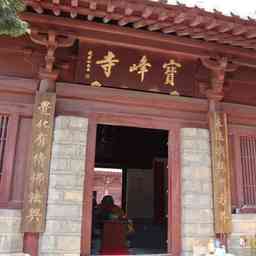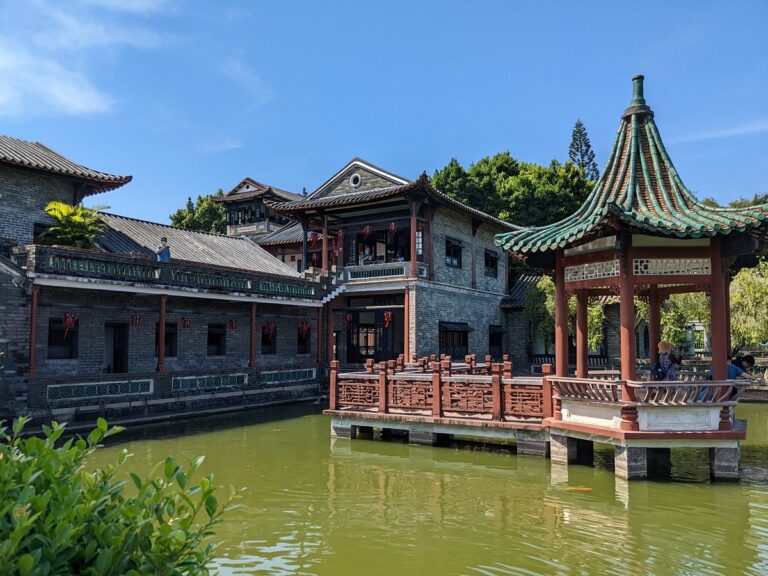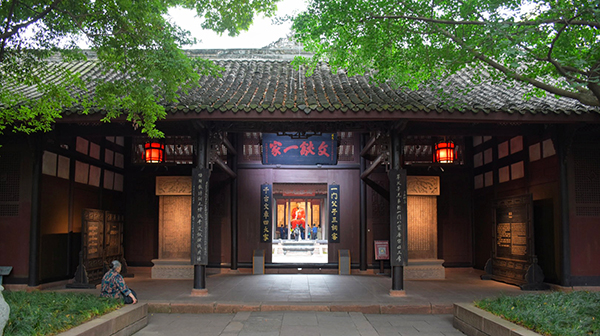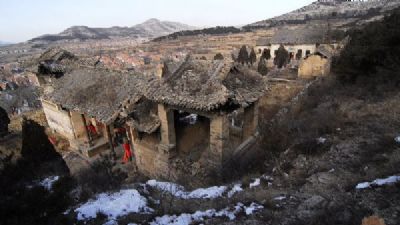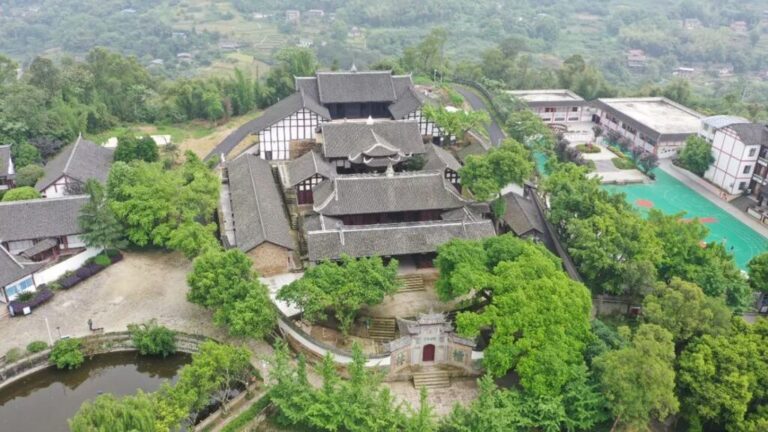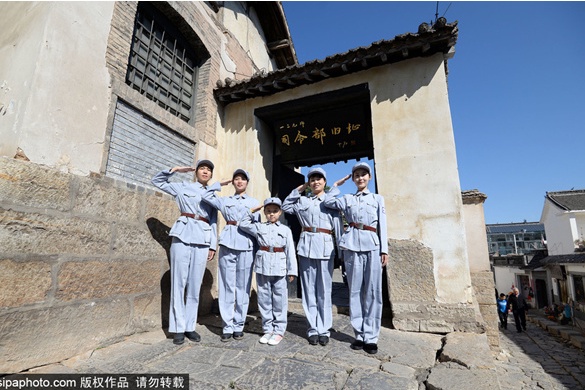A Journey Through History: Discovering Baoji Taigong Temple
An Essential Guide to Visiting Baoji Taigong Temple
In This Guide
- An Essential Guide to Visiting Baoji Taigong Temple
- The Rich History of Baoji Taigong Temple
- Main Highlights: What to See at Baoji Taigong Temple
- Planning Your Visit: A Practical Guide
- Tickets, Hours, and Booking
- How to Get There
- Local Cuisine and Accommodation
- Frequently Asked Questions
- Final Thoughts on Your Trip
Nestled at the southern foothills of Phoenix Mountain in Qishan County, Baoji Taigong Temple (太公庙) stands as a testament to the profound cultural heritage and historical significance of ancient China. Established in 619 AD during the Tang Dynasty, this revered site was commissioned by Emperor Li Yuan to honor the legendary figure Zhou Gong, a key statesman and philosopher of the Zhou Dynasty, who is celebrated for his wisdom and integrity. The temple complex, enveloped by centuries-old trees and lush landscapes, offers visitors a serene escape that is both spiritually uplifting and historically enriching.
As you traverse the temple grounds, the air is imbued with a sense of reverence, echoing the teachings of Confucianism that Zhou Gong so ardently promoted. The architecture reflects a harmonious blend of nature and man-made beauty, featuring intricate pavilions, tranquil ponds, and a plethora of stone carvings that narrate tales from Chinese lore. The temple not only serves as a place of worship but also as a vibrant cultural hub, hosting various festivals and ceremonies throughout the year.
Exploring Baoji Taigong Temple provides a unique opportunity to delve into the depths of Chinese history while enjoying the peaceful ambiance of this historical sanctuary. Whether you are seeking spiritual enlightenment, a peaceful retreat, or a deeper understanding of China’s rich heritage, this temple is a must-visit destination that promises to leave an indelible mark on your journey through one of China’s lesser-known yet profoundly significant sites.
The Rich History of Baoji Taigong Temple
Nestled at the southern foot of Phoenix Mountain in Qishan County, Baoji Taigong Temple (周公庙) is a significant cultural and historical site in Shaanxi Province, China. Established in 619 AD during the Tang Dynasty by Emperor Gaozu, the temple was built to honor Duke Zhou (周公), a pivotal figure in Chinese history revered for his wisdom and governance. This site not only commemorates Duke Zhou but also symbolizes the rich legacy of Confucianism that he helped to shape.
The temple complex has undergone numerous renovations and expansions through various dynasties, including the Song, Yuan, Ming, and Qing. Each era contributed to the architectural splendor and cultural depth of the site, which now encompasses a series of grand halls and pavilions. The main structure, known as the Three Dukes Hall, houses statues and artifacts that celebrate the virtues of Duke Zhou, Duke Shao, and Taigong Wang, further embedding the site in the annals of Chinese historical reverence.
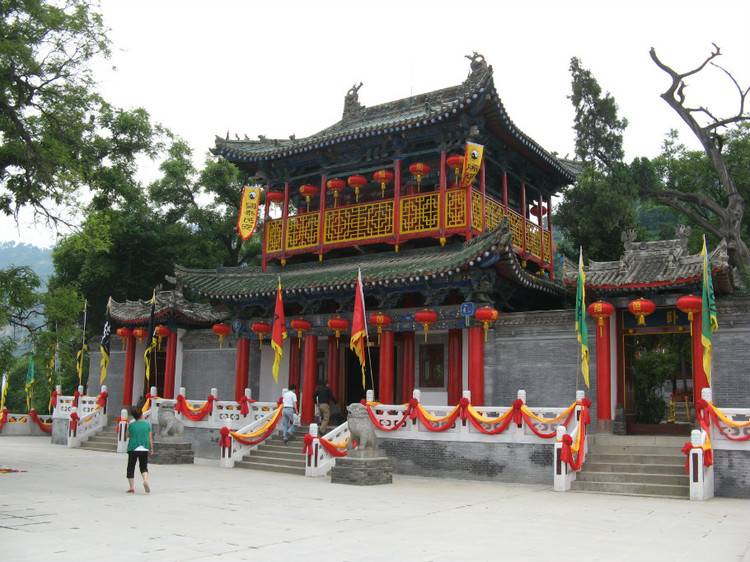
Baoji Taigong Temple.
Surrounded by ancient trees, some over 1,700 years old, the temple grounds offer a tranquil setting that highlights the harmony between nature and spirituality. The presence of the Run De Spring, one of the ancient water sources, adds to the serene ambiance, making it a popular destination for both spiritual seekers and history enthusiasts.
The architectural layout includes various themed pavilions that depict stories of Duke Zhou and other historical figures, such as Jiang Ziya, who is celebrated for his strategic prowess during the founding of the Zhou dynasty. Visitors can explore the scenic trails that lead up to the Phoenix Mountain, where they can find additional monuments, including the tomb of Duke Zhou, further enriching their understanding of the historical context.
Today, Baoji Taigong Temple stands as a testament to Chinese cultural heritage, drawing visitors from around the world who come to reflect on the profound influences of Duke Zhou’s teachings and the broader philosophical traditions of Confucianism. The site not only serves as a historical landmark but is also a vibrant center for cultural exchange and education, encapsulating centuries of Chinese civilization in its architecture and surrounding landscape.
Main Highlights: What to See at Baoji Taigong Temple
Nestled at the southern foot of Phoenix Mountain in Qishan County, Baoji Taigong Temple, also known as Zhougong Temple, is a remarkable site steeped in history and cultural significance. Established in 619 AD during the Tang Dynasty, it was built to honor Zhou Gong, a prominent figure in Chinese history known for his wisdom and governance.
As you enter the temple complex, you are greeted by towering ancient trees, some over 1,700 years old, creating a serene atmosphere that enhances the spiritual experience. The area is adorned with picturesque landscapes, including the famous Run De Spring, a vital water source that has sustained the local community for centuries.
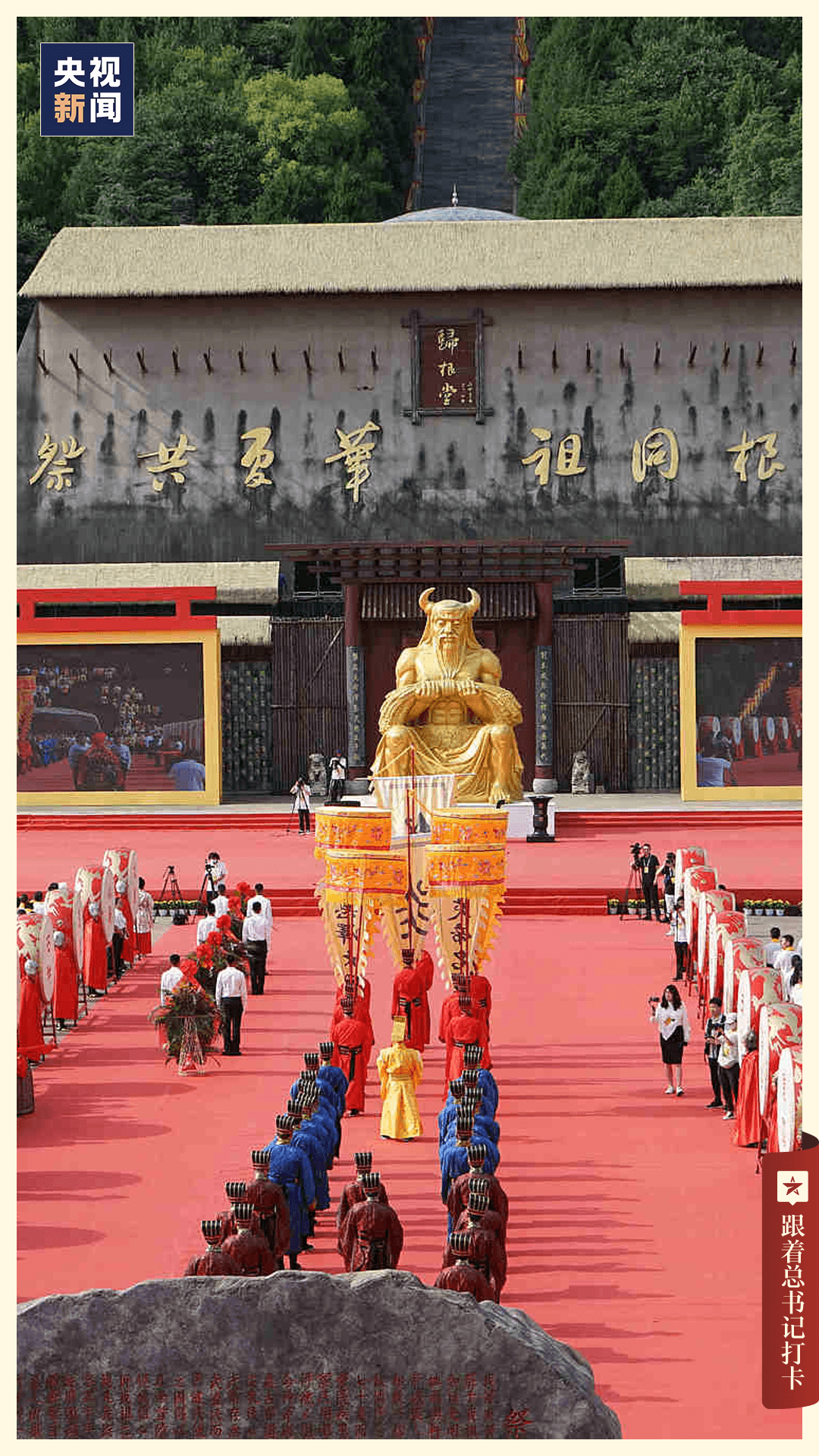
Baoji Taigong Temple.
The temple’s architecture reflects the rich heritage of the Zhou Dynasty. The main structure, the San Gong Hall, is dedicated to Zhou Gong, Zhao Gong, and Tai Gong, with each hall featuring exhibitions that narrate their legendary stories and contributions to Chinese culture. Visitors can also explore various pavilions and pavilions that showcase the tales of Zhou Gong, making it not just a religious site, but also a cultural museum.
One of the temple’s highlights is the majestic statue of Zhou Gong, located near the Eight-Panel Pavilion, which serves as a focal point for visitors wishing to pay their respects. The temple complex also includes scenic paths leading to the mountain gate of Phoenix Mountain, where you can enjoy breathtaking views and immerse yourself in the myths surrounding this ancient landscape.
For those interested in both history and nature, the temple offers a perfect blend of tranquility and education. It’s an ideal spot for leisurely walks, meditation, and gaining insight into the foundational philosophies of Confucianism, as Zhou Gong is often regarded as a key figure in this tradition.
With its rich cultural narrative, stunning natural beauty, and deep historical roots, Baoji Taigong Temple is a must-visit destination for anyone traveling in the region, providing a unique glimpse into China’s illustrious past.
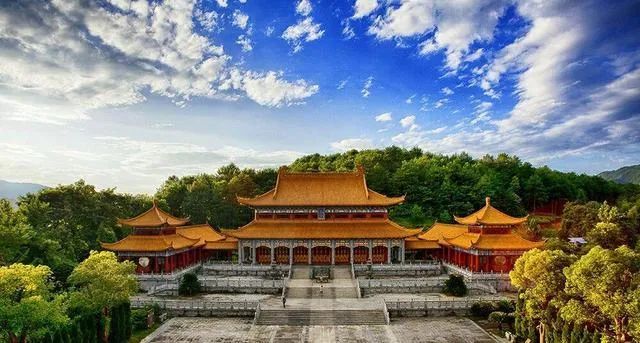
Baoji Taigong Temple.
Planning Your Visit: A Practical Guide
Visiting Baoji Taigong Temple, located at the southern foot of Phoenix Mountain in Qishan County, Shaanxi Province, offers a unique blend of history, culture, and natural beauty. Established in 619 AD during the Tang Dynasty, the temple is dedicated to the revered historical figure Zhou Gong, a key figure in Confucian thought. Here’s your practical guide to make the most of your visit.
Getting There
The temple is approximately 6.5 kilometers from the northwestern part of Baoji city. You can reach the site by taking a taxi or a local bus to Qishan County. If you’re driving, follow the signs to the scenic area, which is well-marked.
Opening Hours and Admission
Baoji Taigong Temple is open daily from 8:00 AM to 5:30 PM. The entrance fee is around 50 RMB (approximately 7 USD). It’s advisable to check for any seasonal changes in hours or special events that might affect access.
What to Expect
The temple complex is expansive, featuring ancient trees, serene water bodies, and traditional architecture. The most notable structures include the Three Princes Hall, which houses statues of Zhou Gong, Zhao Gong, and Tai Gong, each revered for their contributions to governance and morality in ancient China.
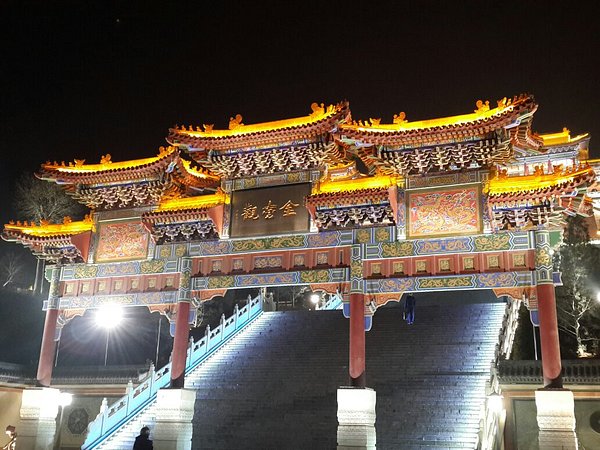
Baoji Taigong Temple.
As you stroll through the grounds, take note of the majestic 1,700-year-old trees and the enchanting Run De Spring, a historical water source. The area surrounding the temple is dotted with pavilions and sculptures that illustrate tales from Zhou Gong’s life, providing a picturesque backdrop for photography and reflection.
Key Attractions
- Zhou Gong Statue: The centerpiece of the temple, where visitors often pay their respects.
- Three Princes Hall: A must-see for its intricate architecture and historical significance.
- Cultural Pavilions: Scattered throughout the grounds, these pavilions depict stories from Zhou Gong’s life, offering insight into Confucian values.
Hiking Opportunities
For the more adventurous, a hike up Phoenix Mountain is highly recommended. The trail features both steps and gentle slopes, making it accessible to most visitors. Along the way, you’ll encounter themed pavilions that narrate different episodes from Zhou Gong’s life. The summit rewards hikers with breathtaking views and a large phoenix sculpture, perfect for a memorable photo.
Facilities and Amenities
The site is equipped with basic amenities, including restrooms and information desks. There are also several vendors offering local snacks and refreshments, so you can recharge during your visit.
Nearby Attractions
If you have extra time, consider visiting the Wuzhangyuan Zhuge Liang Temple, located a short distance away, which honors another significant historical figure from the same era. The Bronze Museum in Baoji city is also worth a visit for those interested in ancient artifacts.
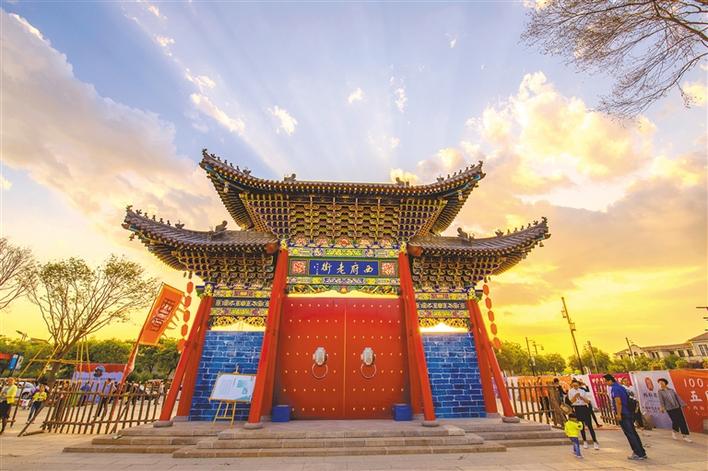
Baoji Taigong Temple.
Tips for Your Visit
- Wear Comfortable Shoes: The temple grounds are expansive, and you will likely do a fair amount of walking.
- Bring Water: Stay hydrated, especially if you plan to hike.
- Respect Local Customs: As a site of cultural significance, maintain a respectful demeanor, especially in worship areas.
- Check the Weather: Shaanxi can experience varied weather, so dress appropriately for the season.
Conclusion
A visit to Baoji Taigong Temple is not just a journey into China’s rich history but also an opportunity to immerse yourself in its philosophical heritage. Whether you’re a history buff, a nature lover, or simply looking for a peaceful retreat, the temple’s serene surroundings and cultural treasures will leave a lasting impression.
Tickets, Hours, and Booking
When planning your visit to Baoji Taigong Temple (周公庙), it’s important to be informed about ticket prices and visiting hours to ensure a smooth experience.
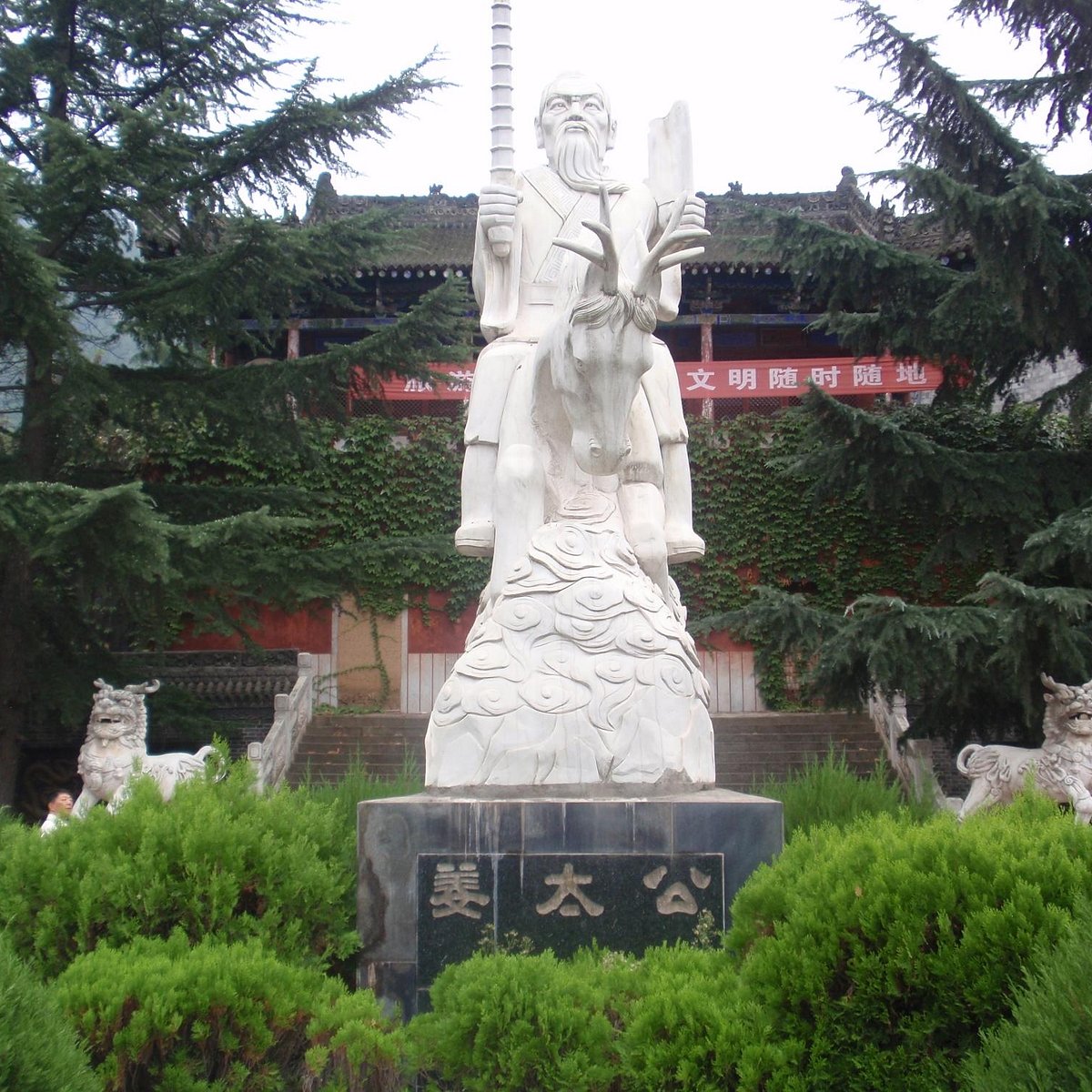
Baoji Taigong Temple.
The temple is open daily from 8:00 AM to 5:30 PM, allowing ample time for exploration and appreciation of its historical significance and natural beauty.
Ticket Prices
- General Admission: ¥50 per person
- Discounted Tickets: Various discounts may apply for students, seniors, and groups, so it’s advisable to inquire at the ticket counter or check the official website for specific rates.
How to Purchase Tickets
Tickets can be purchased directly at the entrance of the temple. However, to avoid long queues, especially during peak tourist seasons, you may consider booking in advance through travel websites or local tour operators.
Additional Information
- Location: The temple is situated at the foot of Phoenix Mountain in Qishan County, approximately 6.5 kilometers northwest of Baoji city.
- Accessibility: The site is well-marked with signage in both Chinese and English, making it easy for international visitors to navigate.
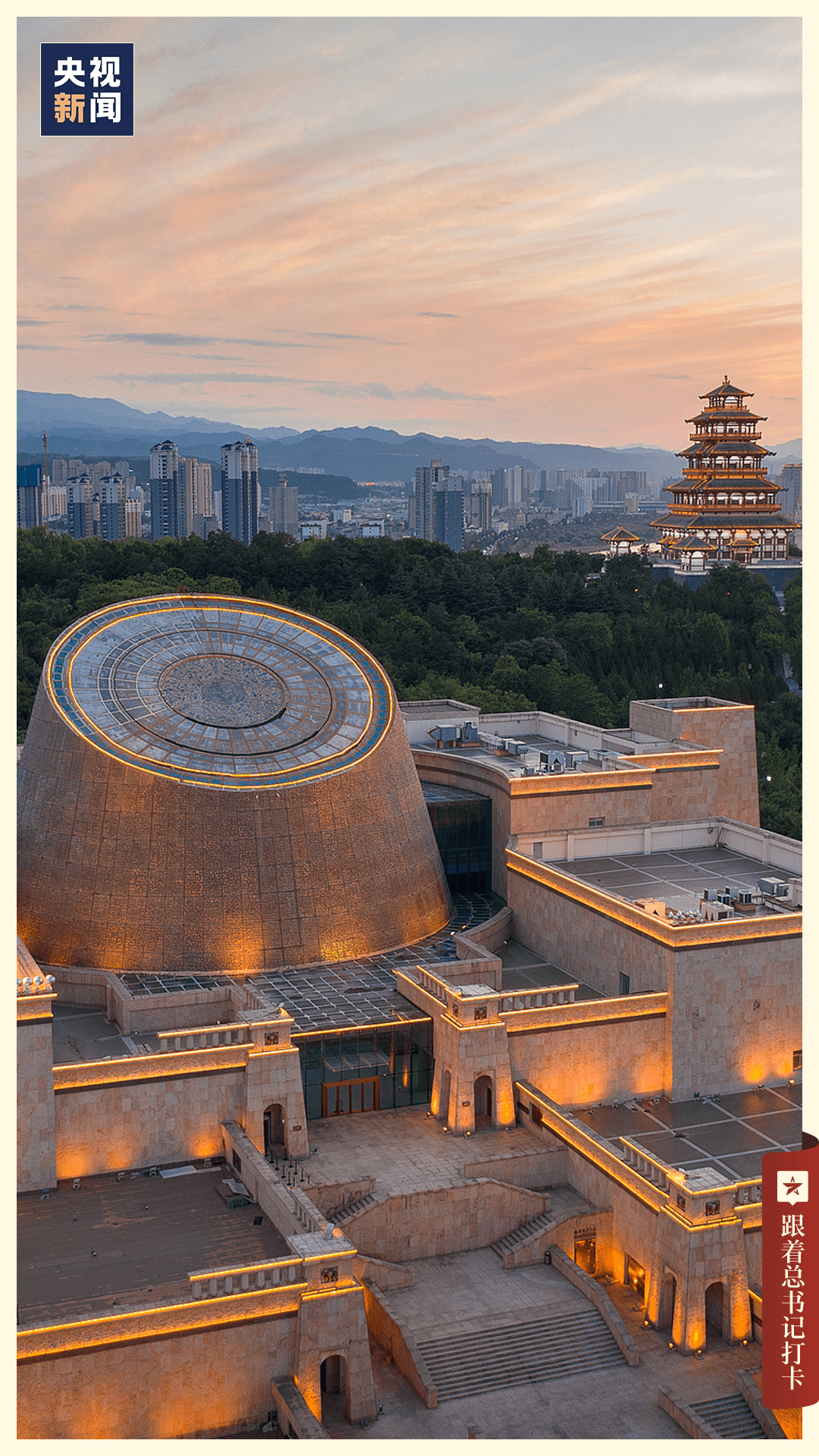
Baoji Taigong Temple.
Make sure to wear comfortable shoes, as exploring the temple grounds may involve some walking and climbing. Enjoy your visit to this fascinating historical site!
How to Get There
Reaching Baoji Taigong Temple (周公庙) is an adventure that blends the beauty of travel with the convenience of modern transportation. Located in the picturesque Qishan County of Baoji City, Shaanxi Province, this historic site is accessible through various means, ensuring that visitors can enjoy its cultural and natural splendor with ease.
By Air
The nearest major airport to Baoji is the Xi’an Xianyang International Airport (XIY), approximately 120 kilometers away. This airport serves numerous domestic and international flights, making it a convenient entry point for international travelers. From Xi’an, you can rent a car, take a taxi, or utilize ride-sharing apps to reach Baoji. The journey takes about two hours by road, offering scenic views of the Shaanxi countryside.
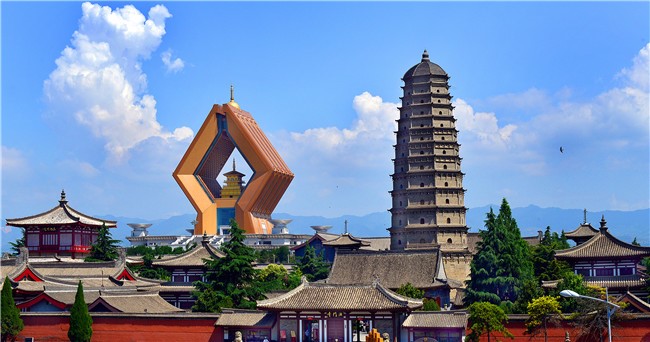
Baoji Taigong Temple.
By Train
Baoji Railway Station is well-connected to several major cities in China, including Xi’an, Lanzhou, and Chengdu. High-speed trains frequently run between Xi’an and Baoji, with travel times of around 30 to 50 minutes. Once you arrive at Baoji Railway Station, you can take a taxi or a local bus to reach the Taigong Temple. The temple is about 10 kilometers from the station, and a taxi ride will take approximately 20 minutes.
By Bus
Intercity buses also connect Baoji with nearby cities, offering a cost-effective travel option. The Baoji Long-distance Bus Station provides services to various locations, including direct routes to Qishan County. Once in Qishan, local buses or taxis can take you to the temple. The bus journey from Baoji to Qishan typically takes about 30 minutes.
Local Transport
Upon arriving in Qishan, public transportation options include local buses and taxis, which are readily available. The temple is situated at the base of Fenghuang Mountain, making it a short drive or bus ride from the town center. For those who prefer more leisurely exploration, consider renting a bicycle to enjoy the scenic routes leading to the temple.
Accessibility
While the temple site is accessible by vehicle, visitors with mobility challenges should prepare accordingly, as some areas may involve stairs or uneven terrain. It’s advisable to check with local transport services regarding any special accommodations.
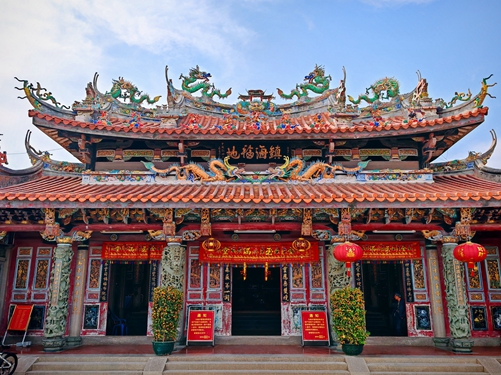
Baoji Taigong Temple.
Summary
Traveling to Baoji Taigong Temple is straightforward, with multiple transportation options available for visitors. Whether arriving by air, train, or bus, the journey through the stunning landscapes of Shaanxi adds to the experience of visiting this culturally significant site. Plan your route, and prepare for a journey that promises not only reflection on history but also enjoyment of breathtaking natural beauty.
Local Cuisine and Accommodation
Exploring the Baoji Taigong Temple area not only offers a glimpse into ancient Chinese history but also allows for a delightful culinary journey and comfortable accommodations. Here are some recommendations for food and lodging around this historic site.
Culinary Delights
-
Qishan Saizi Noodles (岐山臊子面)
A must-try local specialty, these noodles are served in a savory broth with a mix of toppings including meat, vegetables, and a hint of spice. Several restaurants in the area serve this dish, with Guo Quanzhong Saizi Noodles being a popular choice among visitors. -
Min Su Village Restaurant (民俗村餐厅)
Located near the entrance of the scenic area, this restaurant offers traditional dishes made with fresh local ingredients. It’s the perfect spot to relax after a day of exploring the temple complex. -
Barbecue at Haizi Po (海子坡烧烤)
If you’re in the mood for something casual, head to Haizi Po for delicious barbecue. The lively atmosphere and a wide variety of grilled options make it a favorite among both locals and tourists. -
Li Er Fresh Fish Hotpot (李二鲜鱼火锅)
For those looking to try hotpot, this restaurant specializes in fresh fish and other local delicacies cooked in a bubbling broth at your table. It’s a great way to enjoy a communal dining experience. -
Xiao Cui’s Noodles (小崔家臊子面)
Known for its homemade noodles, this eatery offers a cozy dining experience and is often praised for its flavorful dishes that capture the essence of Qishan cuisine.
Accommodation Options
-
Mingdu Hotel (明都酒店)
Located about a 15-minute drive from the Baoji Taigong Temple, Mingdu Hotel offers comfortable accommodations with modern amenities. Guests appreciate its proximity to the scenic sites and the attentive service. -
Qishan Yuanchao Hotel (岐山源潮酒店)
This hotel combines traditional Chinese hospitality with contemporary comforts. It’s an ideal base for exploring the temple and surrounding attractions, offering spacious rooms and an on-site restaurant. -
Baoji Phoenix Hotel (宝鸡凤凰酒店)
Situated closer to the city center, this hotel provides easy access to local attractions as well as the temple. The well-appointed rooms and business facilities make it suitable for both leisure and business travelers. -
Cai Jiapo Phoenix Inn (蔡家坡凤凰旅馆)
A budget-friendly option, this inn offers clean and simple rooms. It’s a perfect choice for those who want to immerse themselves in the local culture without breaking the bank. -
Farmstay Options (农家乐)
For a unique experience, consider staying at a local farmstay. These accommodations offer a chance to experience rural life and often include meals prepared with fresh produce from the farm.
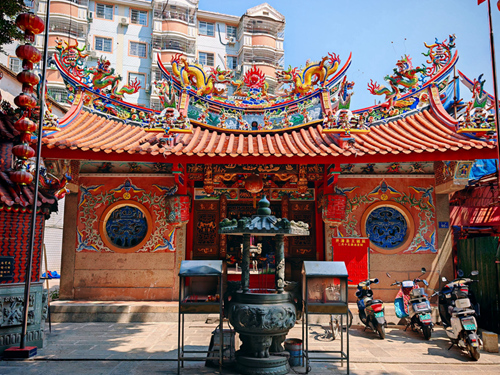
Baoji Taigong Temple.
Whether you’re indulging in local delicacies or resting in a cozy hotel, the area surrounding Baoji Taigong Temple promises a rich and enjoyable experience, enhancing your journey through this historic region.
Frequently Asked Questions
Frequently Asked Questions about Baoji Taigong Temple
1. What is Baoji Taigong Temple?
Baoji Taigong Temple, also known as the Zhougong Temple, is a historical site located at the southern foot of Phoenix Mountain in Qishan County, Shaanxi Province. It was established in 619 AD to honor Zhougong (Duke of Zhou), a key figure in Chinese history and Confucianism, known for his wisdom and governance.
2. What are the main attractions within the temple complex?
The temple features several key structures, including the Three Great Halls dedicated to Zhougong, Zhaogong, and Taigong, along with various pavilions and exhibition halls showcasing historical artifacts and stories related to Zhougong and his contributions to Chinese culture.
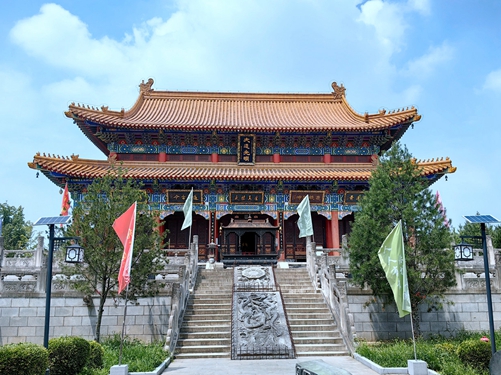
Baoji Taigong Temple.
3. What are the opening hours and admission fees?
The temple is open daily from 8:00 AM to 5:30 PM. Admission fees may vary, and it’s advisable to check current prices online or at the entrance, as discounts may be available for students or seniors.
4. How do I get to Baoji Taigong Temple?
The temple is located approximately 6.5 kilometers northwest of Baoji city center, easily accessible by local transportation options such as buses or taxis. Visitors can also drive, with parking facilities available near the entrance.
5. Is there anything nearby that I should visit?
Yes, nearby attractions include the Five Zhuangyuan Zhuge Liang Temple, the famous Famen Temple, and scenic areas like Jifeng Mountain. These sites offer additional cultural and natural experiences that complement a visit to Baoji Taigong Temple.
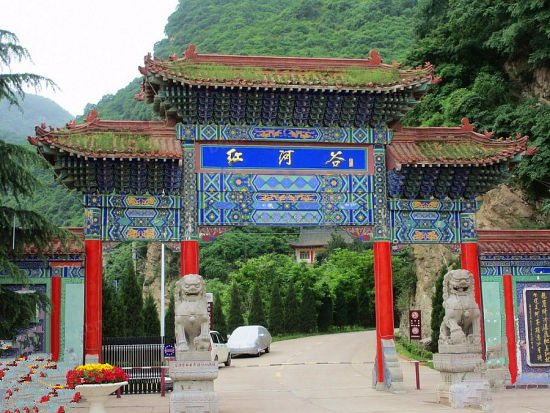
Baoji Taigong Temple.
6. What should I wear when visiting the temple?
Visitors are encouraged to wear comfortable clothing and shoes suitable for walking, as the temple complex includes various paths and steps. Respectful attire is recommended, particularly in the main halls.
7. Are there facilities available for tourists?
Yes, the temple complex offers various facilities, including restrooms and informational signage in both Chinese and English. There are also areas for resting and enjoying the serene environment.
8. Can I take photographs inside the temple?
Photography is generally allowed in most areas of the temple complex; however, some specific sites, particularly within the main halls, may have restrictions. Always check for signs or ask staff for guidance to ensure you’re respecting the sacred environment.
Final Thoughts on Your Trip
As you conclude your journey through the enchanting Baoji Taigong Temple, take a moment to reflect on the rich tapestry of history and culture that envelops this sacred site. Nestled at the foot of Phoenix Mountain, the temple not only serves as a monument to the legendary figures of Chinese history, such as Zhou Gong and Jiang Ziya, but also stands as a testament to the enduring legacy of Confucian ideals. The serene atmosphere, enhanced by ancient trees and tranquil waters, invites visitors to connect with the wisdom of the past while enjoying the natural beauty that surrounds.
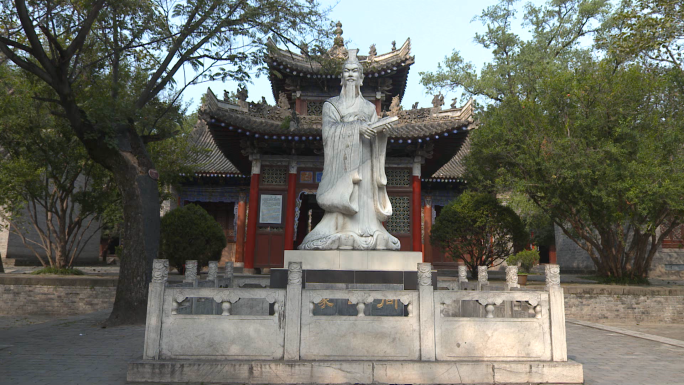
Baoji Taigong Temple.
Whether you are exploring the intricately designed halls, contemplating the profound teachings of Zhou Gong, or simply soaking in the serene landscape, the Taigong Temple offers a unique experience that resonates deeply with those who seek knowledge and enlightenment. This is not merely a visit to a historical site; it is an opportunity to immerse yourself in the spiritual journey that has inspired countless generations.
As you leave, carry with you the spirit of the temple and let it inspire your own path in life. Whether you’re drawn to history, spirituality, or the beauty of nature, Baoji Taigong Temple stands ready to welcome you back, a timeless oasis of wisdom and tranquility.
